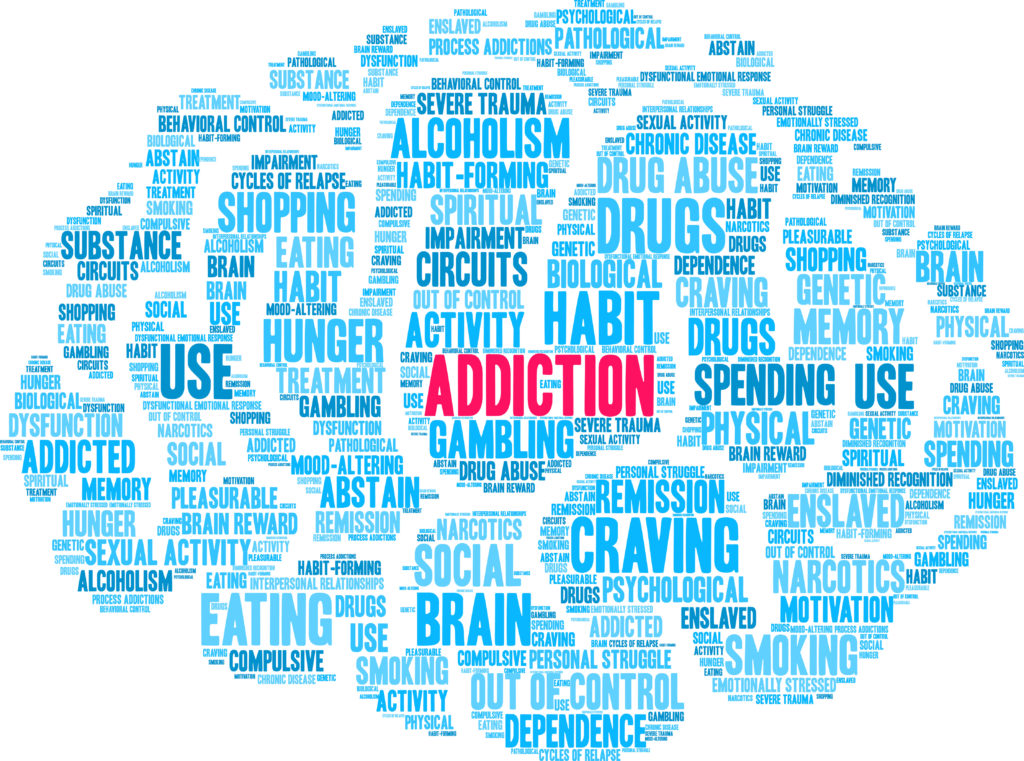Understanding Addiction as a Brain Disease

There is a public misconception that addiction is a choice and that the people who struggle with substance use are weak willed or morally deficient because they are unable to quit. This has created a dark stigma around addiction that shames people struggling with substance use, masking the reality of what this dangerous condition truly is: a brain disease that leaves individuals of all backgrounds trapped in their drug use. The disease of addiction does not care for a person’s race, ethnicity, IQ, or socioeconomic class; it simply has one agenda – isolate and eventually kill you.
Until people are willing to treat it for what it really is the struggle will always be an uphill battle. Understanding this is a crucial step in helping the individual begin their recovery journey and assisting their loved ones cope with the pain and frustration associated with addiction. Spreading awareness is also a key element toward overcoming the stigma of addiction and creating a world where no one needs to be afraid to seek help.
The Science of Addiction
When an individual is taking an addictive drug, they pass through two stages before addiction develops. During these stages, the nature of their brain is altered, disrupting its normal functions to leave them with what is often an overwhelming desire for their chosen drug. This change is why it is considered a disease or a disorder rather than a behavioral issue.
The first stage in the addictive process is called developing a tolerance. This means that the individual’s body is beginning to change in order to adapt itself to the presence of the drug. What this means is the individual will progressively require larger quantities of the substance to feel the same effects as they once did.
Eventually, the body’s changes will be significant enough that it learns to rely on the presence of the drug to function normally. At this point, the individual has reached the second stage known as dependence. If they quit using the drug at this point, their body will no longer know how to function properly and they will experience withdrawal, which is a series of negative side effects that in severe cases can make a person feel as though they are dying. The easiest way to recover from withdrawal is to take another dose of the drug, which is what many individuals choose to do. This locks them into a cycle of using and withdrawal that eventually leaves them locked in addiction.
What truly causes substance use to be classified as a disease or brain disorder is when the body and brain begin to change, ultimately effecting the regulation of chemicals and feelings. Taken in large quantities, most drugs release a natural pleasure chemical called dopamine into the brain to cause it to experience a pleasurable high. The high is desirable in recreational use, but over time the large quantity of dopamine rewires the brain to crave more.
How Significantly does the Brain Change?
When dopamine alters the brain, an individual will have less control over their drug use, shifting a conscious decision to a habitual survival tactic. This can happen even if a person is taking smaller quantities, although the progression may be delayed. The significance of this point is that even prescription drugs taken as intended can cause an addiction if a patient uses them for long periods of time.
In addition to drug use becoming an unconscious act, recent studies have also found evidence of more ways that a user’s brain is changed than was previously believed. In the 2016 issue of The New England Journal of Medicine, a team of neurobiology researchers confirmed that substance abuse:
- Decreases the brain’s ability to feel pleasure and motivation
- Raises the strength and intensity of conditional responses
- Increases the negative effects of stress
- Weakens the parts of the brain involved for decision-making, impulse control, and self-discipline
Many of these findings were affects that medical professionals already suspected were associated of substance use disorder, but their confirmation further details the fact that addiction is a brain disease and needs to be treated as such.
What does this Mean for Addiction Treatment?
Previously, addiction has been viewed as a behavioral problem, and as a result treated as such. The main focus for countering addiction was through the use of discipline in hopes of forcing the patient to see the error of their ways and develop strong morals and self-control. How this might take shape would vary anywhere from jailing the individual to destroying their stash, but even doing this they would usually resume their drug use as soon as they could get their hands on their chosen substance again. The reality of the situation is that by treating addiction as a simple problem, medical professionals were setting patients up for failure in their recovery.
Recognizing that addiction is a disease serves to highlight the complexity of the problem, and in turn the difficulty that recovery will present. Knowing this beforehand ensures that both the patient and the medical professionals are aware that recovery will not be a quick or easy task, but rather an entire life change that requires comprehensive therapy and medical intervention. Being aware of this allows both parties to set realistic goals along the way, a crucial component in the recovery process and ongoing success.
Acknowledging addiction as a disease rather than a behavioral problem also changes the way that medical professionals approach the problem. Instead of looking only at the person suffering from addiction and how they act, professionals need to understand the impact that the chosen drug is having on the brain. While most drugs have similar effects in this category, there are differences between the type of drug and how treatment should be managed.
For example, detoxification (detox) protocols present a serious health risk for patients struggling with alcoholism compared to those struggling with other substances, such as cocaine or opioids. In addition, duration of use, an individual’s age and health, gender, race, and genetic makeup may also affect how their brain responds to addictive substances, and eventually detox and treatment. As a result, professionals must tailor treatment plans to fit the needs of the person, allowing for optimal results and the best possible chance toward ongoing recovery.
Offering Comprehensive Treatment Strategies to Overcome Substance Use Disorder
Overcoming substance use is never easy, but with the proper help and support recovery is always possible. At Brookdale Premier Addiction Recovery, we offer our patients a comprehensive approach through the use of sophisticated clinical strategies, holistic therapies, and expert medical care.
If you or a loved one is currently suffering from substance use disorder, it is time to get the help you need and deserve. It is clear that addiction is a brain disorder and to overcome it, one needs professional help to do so. Please call us today at 855-575-1292 to begin your journey of recovery and find out your Life…Recovered!

